The Mercato del Carmine
The Mercato del Carmine, once the church of Santa Maria del Carmine, is a historic building located in the center of Lucca. Its raw beauty captured me from the moment I walked into the cold, empty space. I knew I had to learn more about it.
This post contains affiliate links that help keep this website running. By purchasing through our links, we make a small commission at no extra charge to you. Thank you for your support!
Santa Maria del Carmine – the Church Before the Market
Previously this area was occupied by the church of San Pier Cigoli, also known as the church of Santa Maria del Carmine. This property included an adjoining convent and Carmelite friars residents from the Renaissance period.
After a time, the large structure lost the use of its function. The Mercato delle Vettovaglie was moved in 1932 from the Amphitheater to this structure.
The church of Santa Maria del Carmine was demolished after standing for over 600 years. The bell tower has now become a clock tower and still stands today.
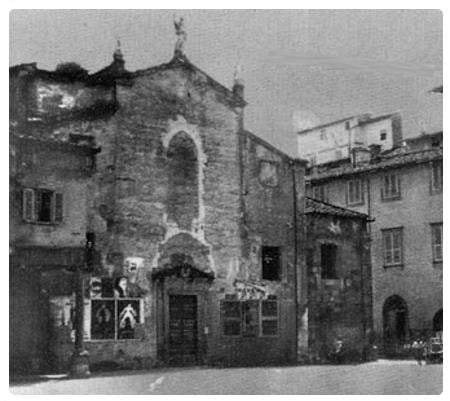
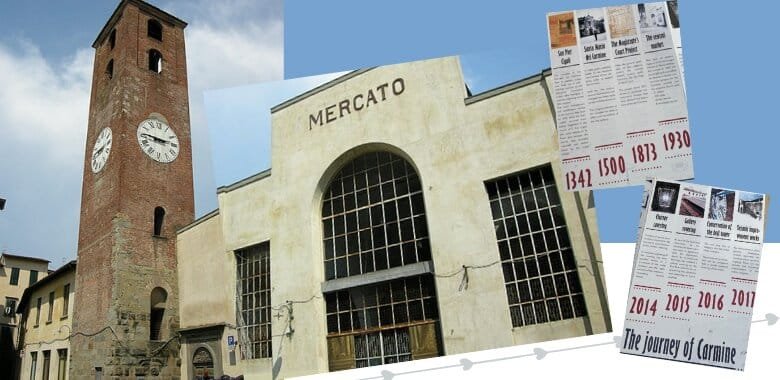
The Mercato
Today, the cloister of the former convent is in fair condition. There are several shops currently located along the perimeter overlooking the neighboring street, Via Antonio Mordini. Such shops include a chocolate shop, fruit and vegetable and one of our favorite bars, Bar del Sole. In fact, our Monday group “English Mondays” meets here from 4:00-6:00 pm to gather, share stories, experiences, and laughter. This group of ex-pats is amazing and sitting enjoying a cocktail in this incredible space is wonderful. If you find yourself in Lucca and especially on a Monday – come and join us! Google Bar del Sole and we will be there to welcome you.
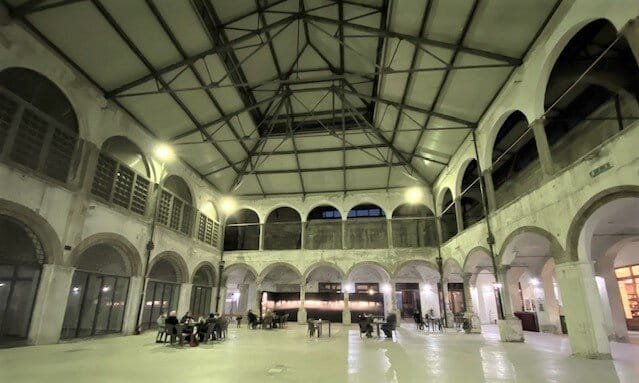
Other Uses of Carmine
On occasion, the open area of the market is used for concerts, cultural activities, as well as, art and craft exhibitions. It’s always interesting to see what might be displayed here. After the closing of the Lucca Biennale Cartasia (paper festival) this year, one of the entries has been stored here for quite a while. Safe and sound, the entry brings art into the cold, grey space.

New Life Ahead for Carmine
Recently, the Municipal Council approved a proposal of revitalizing the old Mercato in two phases. The first part consists of the former church, and the second for the remaining part includes the cloister and shops along Via Mordini and Piazza del Carmine.
According to sources in Lucca, there has been talk of recovering the Mercato del Carmine for over ten years with two master plans presented. In the meantime, the partial recovery of the premises is thanks to the intervention and a new attempt of the Cassa Foundation.
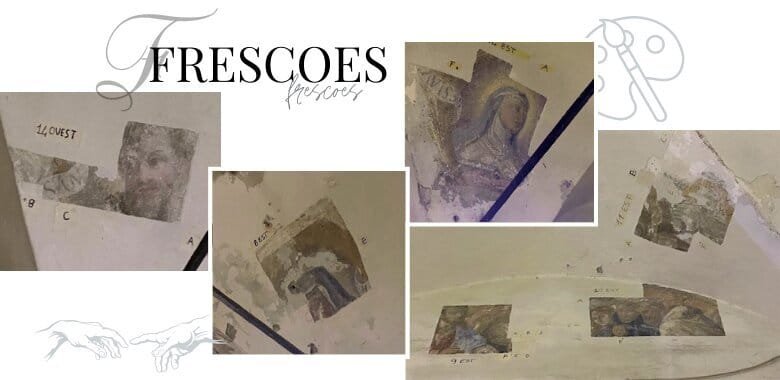


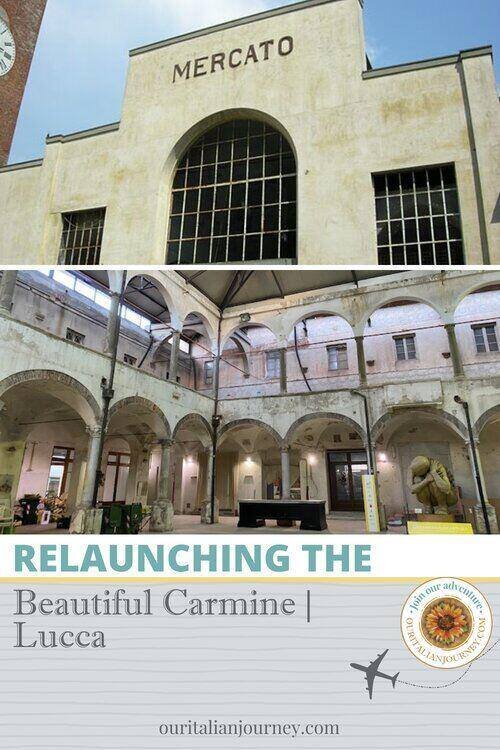






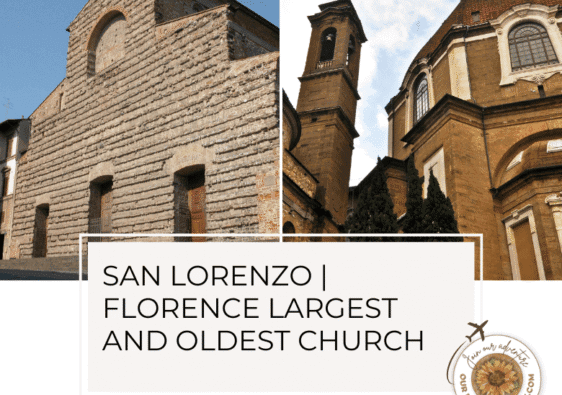
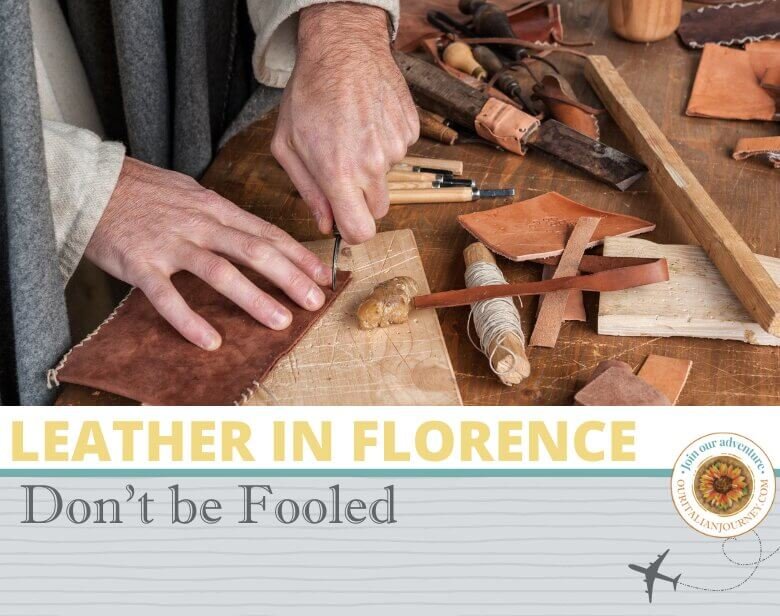
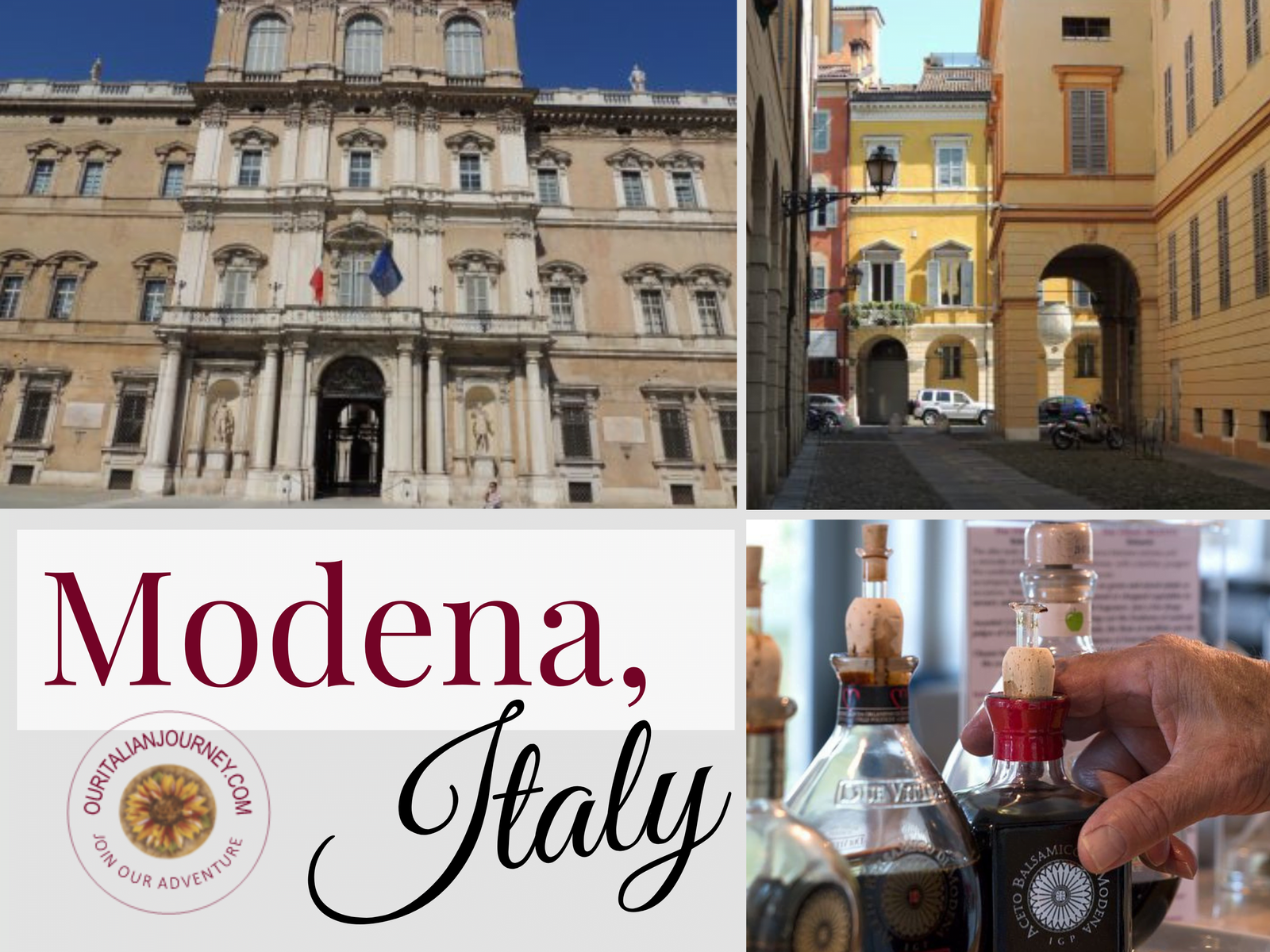
I had no idea that it used to be a church! Thanks for sharing this history with us!
Thank you, JoAn for being a loyal reader (giggles)! I love when a post shares new information for someone. Appreciate the comment.
Can’t wait to get back to Lucca to view the Frescoes!
They are quite small but interesting. Not sure what they are going to do “with them” but we shall see! Fingers crossed!
Good for Lucca to revitalize and not destroy. In the US it would just be torn down and built new. One of the reasons we will never have a history and how Italy is a walking architectural museum. Great post!
I completely get where you are coming from. The Difference is night and day. Glad you enjoyed the post. I get to visit this building every week or when we feel like coffee out!
Thank you for this information and for your passion. During my time in Lucca, I was also struck my the oddly cold and “modern” facade of the Mercato and the random parking lot that seemed so out of place.
The church of S. Pier Cigoli is now only a misty memory known mostly for the beautiful works of art in the Palazzo Mansi and other museums, but it was once the place where families were baptized, worshiped, married and buried in long traditions spanning centuries. S. Pier Cigoli had been the historic location of the Moriconi family tombs, which makes me wonder what happened to those remains. I guess they were probably moved when the church was deconsecrated during the in the early 1800s along with the art. It seems like such a strange desecration for a city that holds fast to history and tradition like Lucca, but I guess it’s really just another layer of history.
Wow – you have information I wasn’t aware of about the church. Very interesting and thanks for providing this additional insight.